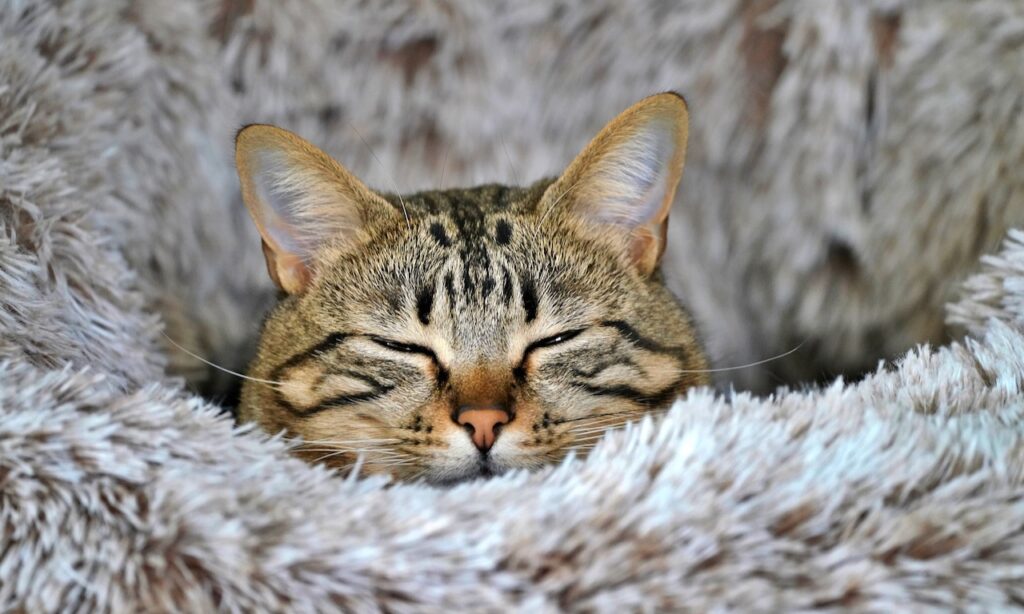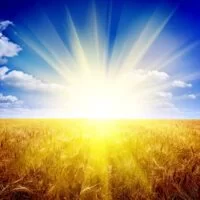
Ask Sananda 59: What Is Joy?
Questions: What is joy and how may I find it?
Listen or download
Transcript
Welcome, and this is Sananda. Joy. What is it? How do you accomplish it? How do you live in a state of joy? Keep it simple. Let it be as simple as possible for you. Joy is the word we use to describe your natural state. Your default setting, we could call it. Joy is not an exclusive state to humans. Animals experience joy as well, for instance; lots of other beings as well. But let’s begin with animals as a way of helping to get a sense of what joy is for you. In many ways, when you look at animals, you can find that they have an easier access to joy or, and this will be very relevant as I continue, less to distract them from joy, less to overlay it or conceal it.
01:28
So we might fairly say that an animal who has a comfortably full stomach, who feels for the time being safe, who is in a reasonable state of health, is going to experience joy. Nothing complicated, it’s alive. Everything’s going okay right now. It’s not that animals have no concept of past or future, but it’ll often be considerably different from your own. And so one of the prerequisites for you yourselves experiencing joy, that is to say being present, having your consciousness present in the moment, often turns out to be easier for animals than for you.
02:31
For though there is that sense, particularly for animals that have a close association with humans, of concern for future or attention to the past, overall the habit of posting your energy into the future or back into the past is a human tendency, a tendency that has been developed as humans have evolved as physical beings and as the kind of reality that you’ve been living in as humans for quite some time has become increasingly established. That firmness of establishment is changing. The fixtures of reality are getting a little wobbly in this current time that you are experiencing. And you’re part of that gathering in of scattered attention from past and future into the present, which is where you find joy. So in essence, as I’ve said, let joy be simple. It’s you being present now and you knowing that you’re alive. It’s a state of life, knowing that it is alive at this level.
04:25
Joy exists on a kind of spectrum and beyond joy, as you move up that spectrum, you can find bliss and there are states beyond bliss, but joy is a very good foundation state for a human being. And because it has this naturalness, this default setting, anytime you’re not experiencing joy will be because you’ve overlaid it, hidden it. You’ve brought in complications. As humans, you’re very skilled at that. It can sound like a criticism to say that, in view of what I’ve already said, but you are explorers. You’re investigating what life is, and so you have developed a pattern of moving outwards from that core state of joy to explore and then to loop back, when you’re remember to, to that native state, that default setting.
05:56
You are moving into new ways of investigating what life is. So the tendency has been to treat joy as a kind of longed for home and you not only as explorers, but to some extent as outcasts driven into outer darkness, having to fend for yourselves in a harsh world and then doing your best to get back to that home which is joy: the warm fire, the friendly greeting. And you’re discovering new ways of exploring that don’t require you to treat joy as a base that you must leave in order to know more. You’re learning to let joy open the doors, to accompany you as you journey forth, to guide you indeed – and it can.
07:10
Another way of approaching this is to think of the distinction between what we will call for convenience, joy and happiness. They’re words that can often be used interchangeably, but by making a distinction: your happiness is dependent upon outward circumstances – it’s there in the word, dependent on what happens; but joy is intrinsic. It’s your soul’s presence. Your soul is in a state of joy in connecting with you or being with you or being you. Why should your soul not be joyful? And happiness then, dependent as it is upon outward circumstances, is part of the way that you’ve been exploring. You do your best to create happy situations, to avoid unhappy situations. And so they teach you, those quests moving to happiness, moving from unhappiness. They teach you something of what joy is, but they are not joy itself. And what is being born in upon many of you in this current age is that happiness, when treated as a quest, can be a little elusive, a unicorn that is around the next corner. And that it becomes evident more and more to you that rather than discovering what joy is by going out and doing your best to create happy situations, it’s really much simpler to stay with joy, but to know that joy doesn’t need to be left at home when you have your adventures, that you take joy with you, that joy doesn’t need to be lost sight of, doesn’t need to be hidden. It doesn’t need to be locked as the happy home when you leave it, locked for safety.
09:46
Because there can also be that in human consciousness as it’s developed, the notion that because you know joy is precious, that it needs to be guarded. You can’t wander out into the world and leave that home place where joy is unlocked for anyone to wander in. So the need to protect your joy. It seems logical, turns out to be nonsensical, doesn’t work. What you protect, you crush. You begin to squeeze it out of existence. And besides, if you lock joy away, it’s not available to you, by definition. You’ve turned the key on it. It’s somewhere else. So a great deal of coming to this natural state of joy is about letting the illusions dissolve, the illusions of separateness, the illusions of joy being somewhere else.
11:07
And in doing that, of course, it’s also really important to allow illusions to dissolve without self-accusation or indeed accusation of others. You’re living, you’re alive, you’re exploring, you’re discovering. From a certain kind of viewpoint, you can say if you’re discovering, making mistakes is part of how you discover. We don’t use that viewpoint. We don’t see mistakes. We just see exploration. Very interesting exploration. So as you allow illusion to dissolve, do it with love for yourself, love for yourself for the brilliance with which you’ve created illusions, how extraordinarily convincing they are, and step back a moment, consider what this is all about. What are you up to? Why did you come here? Why have you decided to be human? Why are you messing around with illusions?
12:19
You are creative, you are creators. You are learning about creation. All of those endeavours to create the happy world, a happy life for yourself, a happy society, the happy planet – it’s a valuable exploration. You are learning about the power of creation and it abides within you. But if you lock joy away somewhere to keep it safe while you are playing out there in the world or endeavouring or struggling or however you see it, if you lock joy away, you are locking the primary source of your power away. You are working with a tiny percentage of available power from your own experience. How if you’re feeling unhappy, depressed, something tragic or difficult has happened in your life, it can be very difficult for you to summon the energy to do even simple things like feeding yourself. So allow joy to be with you, in a sense to be you, as you create.
13:51
But those endeavours where you’re operating on 2% of your power and still managing to create, they’re not wasted. It’s just that you’re moving into better ways, from your point of view, because they’re more enjoyable ways of exploring your creativity. But nothing is wasted in this world. You live in a world of recycling. Every experience can be recycled beautifully. The least joyful experience you can recall or imagine, you can recycle it back into joy.
14:38
So have a certain lightness of touch in relationship to yourself. Notice those times when you fall out of a state of joy, maybe many times even in the course of a single day, let alone a lifetime. But ‘be easy with yourself about that. Allow yourself a certain measure of good humour. “Oh dear, there I go again,” you might say. It doesn’t really matter. You as a being are loved without stint, without any kind of limit. Whatever you do. Whether you’re in a state of joy or a state of misery, you’re still loved. And whether you’ve taken that home state of joy with you as you’ve travelled, or whether you’ve left it far, far behind, it’s still there. It doesn’t vanish. It doesn’t cease to exist. So you are learning to allow joy to be the generator of your choices, your actions, your thoughts, your feelings, your sensations, rather than the hitty-missy process of attempting to create something in the outer world that will generate a feeling of internal joy. You don’t really need to do it that way.
16:17
Start with the joy. But you may feel that ‘I would love to start with the joy. However, it’s gone somewhere. I can’t find it. I’m experiencing physical pain. I’m experiencing ill health. I’m experiencing sadness, depression. I’m experiencing mental congestion. My mind won’t stop. All of these things can demand that you cease to experience joy. They crowd in, they want your attention and they can make a lot of noise. Joy may generate noise, the joyful song within you, the song of being, but it doesn’t muscle in. It doesn’t use sharp elbows. It’s quite content to wait until you come to it again.
17:32
And it takes skill to move through the illusions, from one point of view, the intervening layers, from another point of view, of all the stuff that makes up human experience: physical sensations, emotions, thoughts, all of that that your human life feels to be composed of. Those can feel like many layers. You can feel as if you’d be an archaeologist digging down through stratum after stratum after stratum until you get to that precious Garden of Eden time when all was well with you, when joy was your natural state. Sure, it can feel like that. But is it like that? The Garden of Eden feels as though, if it existed at all, it existed long ago or it might exist somewhere in a distant future that you’ve got to get back to. Indeed, it’s implicit in the stories that you inherit as part of your culture, your societies. But what we say to you is that using the image of the Garden of Eden, it’s here now; and with patience and with kindness and with love for yourself and with good humour as well, even if things are difficult for you in terms of the outer world, you can find joy. It’s there. It’s never gone. But if you’re not managing to find that joy, then continue to be really kind to yourself. You’re not stupid, you’re not bad, you’re not flawed. It’s just those layers can sometimes feel really very thick and very present, very concealing, very opaque, very convincing.
19:55
And so although joy is fundamentally profoundly simple, living that life of joy, knowing simply that your life loves being alive, because that’s really what joy is, knowing that, living that, yeah, that demands the development of skills. But you are developing those skills, it’s what you’re about. You wouldn’t be listening to these words if you weren’t very much engaged in discovering more and more how to be joyful in the moment. Let yourself be aware that being joyful does not preclude, for example, experiencing a range of emotions. You can watch (and here’s a familiar analogy), you can watch the surface of the ocean – that’s to say your emotions going through all sorts of changes from flat calm to huge storm, everything in between. And yet the depths of the ocean, the joy of being alive, a life knowing that it is alive – that’s there. And as you develop that skill of knowing the truth of the deep ocean, then you find that the weather on the surface passes a lot more easily. The storms don’t last for days, maybe just a few seconds. But it’s okay, however long they last. You can know that that joy is there within.
22:03
Equally, if you look at the action of the mind, the mind will often be attracted by complexity and by simplicity. The mind creates all sorts of complications and then wants to squeeze them back down to a single simplicity. And having achieved that single simplicity, if it manages it, it then can’t resist breaking the simplicity up and making it complicated again. It has this circular motion. Other motions exist as well within the mind. It’s complex, but that’s there. But you can, and you do, increasingly learn to actually relax and enjoy the play of your mind, to see it for play, to see it as an interesting phenomenon that you can engage with, but you have no obligation to. Mind just does its own stuff. And there can be an experience of joy or recognition of joy in watching the mind doing its acrobatics. You can admire the way it plays. And in that sense, you become part of the play, or the play becomes part of you, and the connections free up as an ease, an ease of flow. You are in a state of play rather than angst.
23:27
Even if we look at the physical body where you may understandably say, ‘Actually, right now I’m feeling ill, or right now I have a knee that hurts. It hurts a lot. I’m not enjoying this and it’s ridiculous to expect me to enjoy this’. For sure, physical pain also, like emotional pain or mental pain, is a great distractor from the state of joy. And if the pain is very considerable and it can be, then yeah, not easy to find that place of joy, but not impossible either. Pain has its own narrative, its own take, its own understanding of what’s going on, and it will seek to impose that upon you. But even when there’s considerable level of pain or suffering through ill health, you have the skill to find behind or through that joy of being alive. But again, be really kind to yourself if you’re unwell or in pain, then be gentle.
25:12
Recognise that what I’m saying is possible can also be demanding. And you may not always feel up to meeting that demand. And if you don’t, that’s all right. There’s no blame. As I’ve said before, you’re not weak, you’re not foolish, you’re not bad, you’re not inadequate. It’s simply that if you choose, as you have chosen, to live this physical life, then it is done with deliberation and intention. And part of the intention behind making that choice is that you discover more about the nature of bringing spirit, which is what you are in essence, into close relationship, complex relationship, with physical matter in the term of living cells, living cells that do the utmost to collaborate with you, to align with your purpose, to understand your purpose, to assist you. And it’s a wonderful way of exploring. You bring the gift of your presence to the world of physical matter, and, in the form of your physical body, the world of physical matter does its utmost to enable you to make real in this real world the joy that is your aliveness.
27:07
And if that’s sometimes complex, if it feels to you that you’re sometimes failing, there is no need to blame yourself or anybody else. You’re doing something that is so well worthwhile doing for reasons that you know, but also for reasons that you don’t yet know. You are creating, from a certain point of view, you could say that you’re in the process of creating a new kind of being in the Universe. It’s not solely you here on Earth are engaged in that. Others, lots of others, are as well. But the Universe evolves and you’re part of that evolution.
27:55
So if you choose to assign labels to your experience and say, ‘This is a failure, this is a success’, if you do that, do your best to consider the possibility that it might be truer to abandon those labels altogether, to see yourself simply as an explorer and that what you discover as you explore, whether you regard as a failure or a success, all of it is valuable. So you’re learning how to embody joy; to make joy, as it were, a real physical substance. And that’s a wonderful thing to do.
Thank you for listening. Go well.

